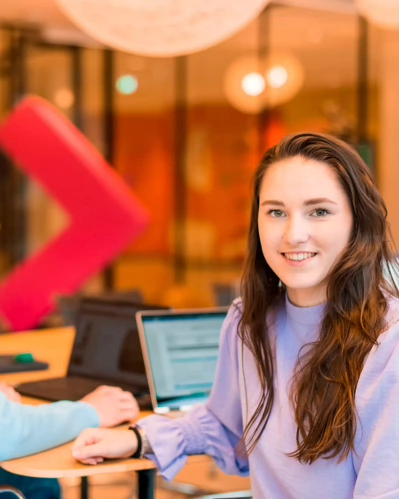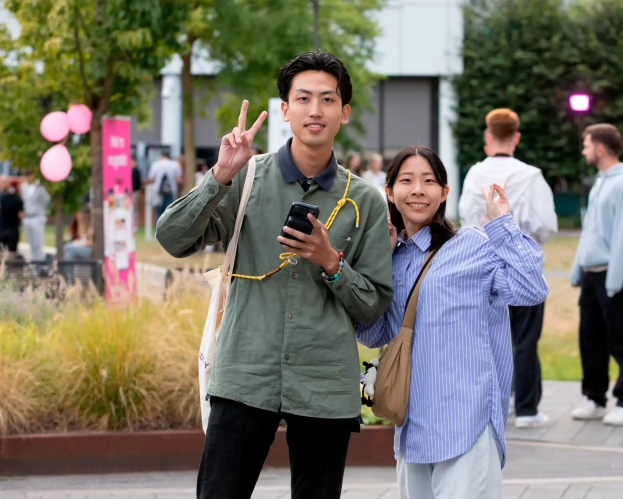
Programme
Programme
You will follow at least 3 hours of instrument classes a week: individual lessons, group lessons, technique, and ensemble. At the same time, you will learn how to reflect on your own development and that of others.
In the ensemble and chamber music trajectories, team teaching is at the heart of the programme. You will become inspired by various teachers in a dynamic and collaborative context. Alongside this, you will participate in projects and masterclasses, work with ensembles in residence and partners in the region, and audition for our concert series. Your curriculum will be supported by knowledge of music theory, music history, cultural theory, research, entrepreneurship, interdisciplinary courses and other electives (such as conducting, philosophy, and teaching skills).
Tailored to your needs
You are able to design a large part of your trajectory yourself. We believe that education is best when tailored to a student’s needs and prefer to shape it through their interests, qualities and preferences. A professional team of mentors will guide you to make the right choices. You not only become excellent musicians who can connect to the existing music field, but we also educate you to become frontrunners who inspire and change the current state of the art. Our internationally renowned professors, an excellent team of mentors, and a number of high-profile ensembles in residence will bring your artistry to a higher level!
Departments

Classical

Jazz & Creative Music

A week at our Conservatorium
At Conservatorium Tilburg, you have a 5-day study week from Monday to Friday. In the morning, courses on music theory, music history, cultural theory, entrepreneurship and artistic research are offered. In the afternoon, the instrument lessons (individual, group lessons, technique, complementary instrument) and ensemble lessons take place. You also have time to study in the afternoon.
Also, we host concerts on stage, trying out concerts, jazz sessions, masterclasses etc., together with our local partners or at the Conservatorium. On top of this, we host 2 project weeks per year together with our partners in the field.
The total study load takes up to 40 hours per week.
- Develop basic skills in instrument (technique and interpretation), music theory, history, cultural history and research.
- Ensemble lessons: core ensemble & project ensembles.
- Co-creation: work together with other art-disciplines.
- Projects, project-weeks and masterclasses.
- Additional piano lessons.
- Classical singers have an additional trajectory in languages (French, IPA, German, Italian).
- Classical & jazz singers have an additional trajectory in drama (actor training, theatrical improvisation).
- Richer and more profound lessons in instrument, music theory, history, cultural history and research.
- Ensemble lessons: core ensemble & project ensembles.
- Two introductory modules (to select out of 7): concerning conducting, teaching, composing & studio.
- Co-creation: work together with other art-disciplines.
- Project(week)s and masterclasses.
- Additional instrument lessons.
- Classical singers have an additional trajectory in languages (French, IPA, German, Italian).
- Classical & jazz singers have an additional trajectory in drama (actor training, theatrical improvisation).
- Instrument and ensemble continues.
- Entrepreneurship course.
- Co-creation: work together with other art-disciplines.
- Projects and masterclasses.
- Free Choice (30 out of 60EC): you can design your own trajectory.
- Focus on final exam.
- Electives (15EC).
- Entrepreneurship course.
- Projects, project weeks and masterclasses.

